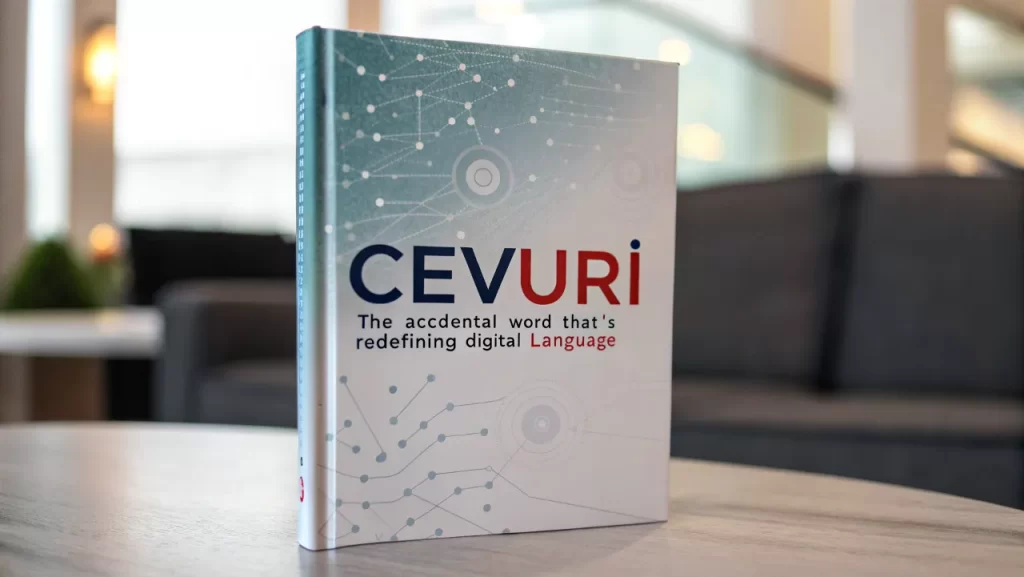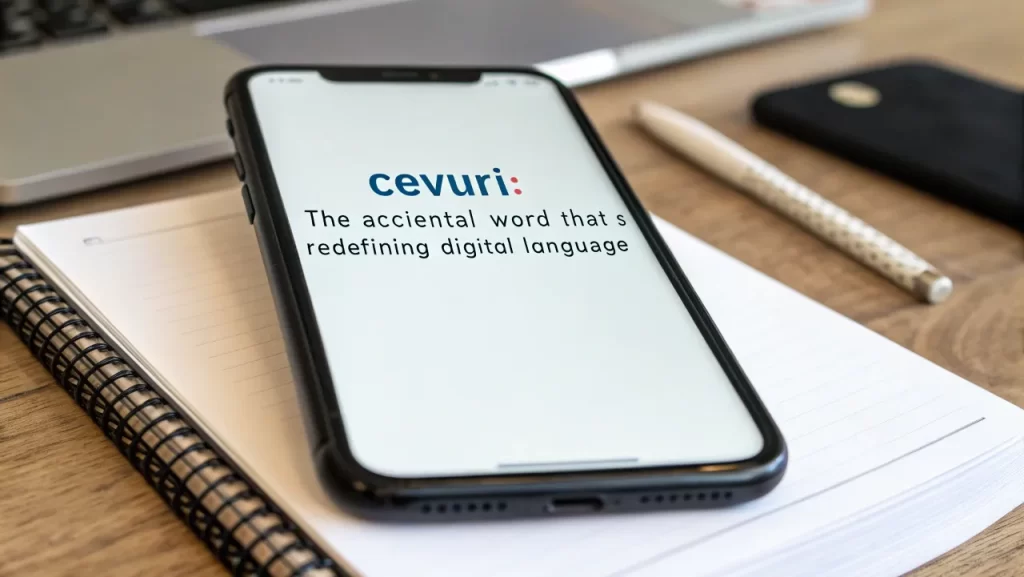Table of Contents
A Word That Was Never Meant to Be
In the vast ecosystem of technology and internet culture, some words are born by accident—but survive by purpose. Cevurı is one of them. It’s not in any dictionary, yet it’s popping up across forums, memes, and online conversations. A curious collision of letters that seems familiar yet elusive.
But what exactly is cevurı? And why is it quietly building a presence online? This article is your decoder ring for the word no one can quite define, but everyone seems intrigued by it.
A Glitch with a Backstory
The first time you see cevurı, it feels like a mistake. And maybe that’s how it started. It closely resembles the Turkish word çeviri, which means “translation.”
Some believe cevurı is a simple mistranslation—perhaps a typo born from a missed keystroke or a jumbled character set. But the internet doesn’t let mistakes stay buried. In fact, it tends to turn them into legends.
Soon, cevurı took on a meaning beyond its roots. It became a symbol of digital miscommunication—and a reflection of how online language evolves through chaos.
When Nonsense Becomes Narrative

Look at words like yeet, finsta, or rizz. None of these had clear dictionary definitions at birth. They grew into meaning because people gave them one.
Cevurı is part of this same movement—accidental words that find relevance in virtual subcultures. In some Reddit circles, it’s joked about as a mystery app. Elsewhere, it’s used to poke fun at translation fails or strange tech glitches.
Its power lies in its mystery. The less we know, the more room we have to make it mean something.
The Evolution of Digital Slang
Every culture has slang, but internet slang is unique. It doesn’t just evolve—it mutates at high speed. New words bubble up every day, and some stick simply because they sound cool or strange.
Cevurı isn’t just a word—it’s a linguistic orphan that found a home. It feels foreign yet fits into English phonetics. That odd familiarity makes it meme-friendly and adaptable.
Also Read: Exploring the Features of Mifroom: A New Age Platform for Digital Engagement
People love things they can shape. And cevurı is like digital clay.
The Curious Case of Cevuri.com
Enter the digital entrepreneur. The moment a term shows traction, someone tries to cash in.
A quick check shows that cevuri.com has seen spikes in traffic. At times, it redirects to vague content or is parked for profit. Why? Because curiosity drives clicks. People don’t know what cevurı means—but they want to find out.
Marketers are drawn to ambiguity. And cevurı offers endless room for branding, humor, and intrigue.
Memes Made It Matter

You know a word has made it when it enters meme culture. On platforms like Tumblr or TikTok, cevurı is being used as a joke, an app name, a secret code, and even a fake tool to decode emotions.
Why does it work? Because memes thrive on the absurd. The stranger the term, the funnier it becomes when paired with the right image or caption.
And since no one owns the meaning of cevurı, everyone can play with it.
A Placeholder for the Internet Age
Sometimes words don’t describe—they symbolize. That’s what cevurı has become: a placeholder. A word that means “something lost in translation” or “whatever this nonsense is.”In digital conversations, people use it to express confusion, irony, or a shrug at tech gone wrong.It’s the emoji of language—open-ended, emotional, and contextual.
Also Read: Increa: A Modern Framework for Personal and Professional Growth
The Semiotics Behind the Madness
From a language theory standpoint, cevurı is a “floating signifier.” This means it points to a concept without being locked into a definition.
That gives it power. It becomes whatever the user needs it to be: a joke, a metaphor, or a glitch in the machine.
This openness is rare in formal language—but common online, where meanings shift faster than trends.
The Translation Paradox

If we go back to the idea that cevurı is a warped version of çeviri, we land in a strange paradox: it’s a mistranslation that now symbolizes mistranslation.
In the age of AI-powered tools and real-time language apps, errors are common. Machines don’t always get nuance or slang.
Cevurı is the mascot of that struggle—a digital reminder that even the smartest tech can fumble the simplest things.
A Word Without Borders
What makes cevurı even more interesting is its cross-cultural DNA. It may sound Turkish, but it’s now part of a global internet lexicon.
Words like this remind us that the web isn’t just English. Slang, typos, and memes from non-English languages are now shaping the tone of global conversations.
In this way, cevurı becomes more than a word. It becomes a symbol of shared digital culture—a culture that’s messy, multilingual, and constantly in motion.
Final Thoughts
So what should we take away from the rise of cevurı? First, it shows how technology isn’t just about code or machines—it’s about how humans adapt to and play with it. A single glitch, typo, or mistranslation can spark a new cultural moment.
Second, it reminds us that meaning is fluid online. Words are shaped by use, not rules. And that’s not a flaw—it’s the internet’s greatest strength.
Cevurı is a word that wasn’t supposed to exist. But it does. And in doing so, it tells us more about ourselves than most perfectly formed phrases.s ever could.
FAQs
What does “cevurı” mean?
Cevurı is an internet-born word, likely a typo of the Turkish word “çeviri” (translation), now used in digital spaces to express confusion or irony.
Is “cevurı” a real word?
Not officially. It’s not in dictionaries but has gained meaning online as a meme, glitch term, or cultural in-joke.
Why is “cevurı” trending online?
Its mystery, strange spelling, and meme potential make it a fun placeholder in digital conversations and social media humore.




